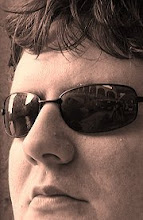I'm trying to remember which piece of fiction I read last, and I mean start-to-finish. Somehow I've earned a college degree in English Writing (in addition to Philosophy), which entails massive reading lists, and yet I've SparkNoted my way through most of those... as, I'm sure, many students do. Samples of works I've not read and should've: the Odyssey, Othello, Hard Times, Beowulf, Don Quixote, the Ramayana, Candide, To Kill a Mockingbird, The Legend of Sleepy Hollow, The Island of Dr. Moreau, Heart of Darkness, Things Fall Apart, The Metamorphosis, and dozens of short stories in classic and contemporary American and world fiction, including Tolstoj, Hemingway, Hawthorne, Joyce, Poe, Shelley, etc. I wrote my English capstone course term paper on Lolita--without having read the book in ten years. Notice that this list would've been much longer had I been an actual English major and thus required to take more literature courses; yet I feel that even in that case I would've avoided much of the hassle. (That I've been a straight-A student without ever reading the assigned texts says something either about me or about my professors, and probably about both, but that's a discussion for another time).
What did I read then? Well, Siddhartha--it's my all-time favorite and I had no problem sifting through it again for a world religions class, though it is relatively heavy on philosophy and light on narrative. I lived through bits of Dubliners and Dante's Inferno, though I had read the latter as a teen entirely. But... I think that's it. The ultra-short Miss Brill... Young Goodman Brown... a lot of graphic novels... the short fiction for my college's literary magazine... period. That I even remember which ones I did read, and often even where I was, is quite telling.
What did I read then? Well, Siddhartha--it's my all-time favorite and I had no problem sifting through it again for a world religions class, though it is relatively heavy on philosophy and light on narrative. I lived through bits of Dubliners and Dante's Inferno, though I had read the latter as a teen entirely. But... I think that's it. The ultra-short Miss Brill... Young Goodman Brown... a lot of graphic novels... the short fiction for my college's literary magazine... period. That I even remember which ones I did read, and often even where I was, is quite telling.
I won't even start listing all the poems (probably well over a thousand), literary criticism (mostly about poetry, unless mandated for class), and of course philosophy books and papers (those too numbering into the hundreds). I wrote 47 poems in college and over six hundred pages' worth of papers, essays, reflections, and personal notes, the latter mostly on philosophy. And I don't even keep a journal or blog!... well, until now anyway. I say this not to brag, but to prove to myself that I'm neither uninspired nor easily bored. I am "just" very selective, in the sense that if it's fiction I'm about 99.71% less likely to read it... heh.
What's my problem with fiction? On first analysis, it bores me to sobs. I have a very short attention span with novels, for the most puerile reason: if they don't get to the point within 10-20 pages, and they almost never do, I grow antsy and they're not worth continuing. Of course, a novel's goal is not to "get to the point," but to tell a story and tell it well. To do so, it needs at the very least setting and characters. I'm not the least bit interested in either. I can appreciate those nuances theoretically and even tell between good and bad character development... if forced to, and only because I've been trained to do so. But I just don't care about characters, what they feel, think, or experience. It's difficult to follow a story when I've no connection with its players. The few pieces I've read appealed to me for something other than their protagonists. Siddhartha plucks my spiritual strings: there is no Siddhartha character in my mind, but only the (watered-down) theology of his spiritual journey. Dante is culturally important for Italians and goes far beyond its (great) literary merits, not to mention that it's poetry and thus up my alley. And with Lolita it was the language that kept me going, Nabokov being the master that he is: I feel nothing for Humbert or Dolly and am not interested in the novel's significance.
However, it's wrong to say I don't care about stories in general, or characters, or people, or even feelings. Graphic novels entertain me on those levels quite well, as do movies and TV series. I'm in fact a huge movie buff. I get into movies, cry at (most) movies, think long and hard about them, and sometimes even write my own little screenplays. Is it then a matter of time? Maybe when I'm studying philosophy time is not a constraint, but when I'm being told a story I want it to be done in the shortest possible time, and so a movie is better than a book merely because it's over with more quickly. This is sensible, and it squares well with another observation: lately I've been more attracted to TV series (mainly science fiction) than to movies, because to watch a new movie sometimes feels like a higher mountain to climb than to watch a series episode. So perhaps even movies sometimes feel unnecessarily long and I fall back on the quicker fix!
I never had attention deficits as a kid: always sat still at my desk, was quiet, and never was (still am not) good at multitasking. Upon reflection, I'm a good active listener and capable of conversing for hours on end. So might I have an attention problem only with reading? Surely not, given how much stuff I do read. It's true that I can rarely read even philosophy for more than 30-40 minutes at a time without having to stop and think, but that's just healthy: there's so much to think about that continued intake of new information disturbs my thought processes, and that's much better than to read through a book in one sitting like some claim they do. They probably aren't thinking hard enough and instead just drink in the information passively.
It follows that I might have an entertainment-related attention disorder, and my relationship with video games substantiates that hypothesis. I love video games... but which kinds do I play? Mostly first-person shooters. I used to love strategy, simulation, and graphic adventures as a kid, but not anymore. Shooters are a quick thrill, a quick fix--and yet how many of even those have I finished last year? Only two: the latest Call of Duty and the bone-chilling Dead Space. Did I buy more? Oh yes... about a dozen, in fact. I re-sold them all a few hours into them, including the great Crysis, which I had liked a lot at first. I just very quickly lost interest and became supremely bored with them. To me, this means that even shooters better grasp my attention very hard and hold on to it very dearly, lest they lose it.
Now compare this trend with the fact that I've watched perhaps ten new movies last year and only (re-)read Siddhartha. Video gaming, reading, and watching movies are such radically different experiences that I must think the problem is not with any one medium but rather across the board: a very selective, entertainment-oriented attention deficit disorder. If I'm to be entertained, it better be quick, down and dirty, and extremely satisfying in a very short time... or else it's just not going to work. If true, this would mean I'm very utilitarian about myself. What is the purpose of entertainment? To nurture and soothe, to amuse and relax, to challenge or pacify. What is the quickest way to do so? Such and such. Then why should I choose other ways if they take longer to accomplish the same result? Notice that even though I'm spelling this out logically, it doesn't happen consciously in my mind: it's an entirely automatic process that I'm only now starting to look at bare (assuming I'm right).
For many people, reading fiction is pleasurable precisely because it is not very purpose-driven, though it can still be enriching. You can let your mind wander and wonder, both idly and thrillingly (is that even a word?), not worrying about goals of efficacy or even efficiency. I guess I'm just not that kind of person, and I'm fine with that after all: no one said that in order to be a learned person, or even a good scholar, you have to read fiction. Projecting myself now in the role of an instructor or even father, I'd rather have a kid who picks Hume and Locke over Woolf and Joyce any day. But sometimes I wish I could just enjoy that side of literature as well, even if it meant (God forbid) to be able to read Michael Chrichton or Dan Brown... because right now I can't do that either.
~~~
PS - As an addendum, I feel this isn't yet the full picture. Do I not also enjoy philosophy? Do I not glean not only insight but also personal pleasure from poetry and literary criticism? Perhaps this problem is better framed into a discussion of what entertainment is for me rather than what it "should" be generally. After all, that most people make a clear distinction between "books for fun" and "books for school" doesn't mean that I must. It might be very sensible to hold that all books are "books for fun" for me, and I only like certain genres more than others. Food for thought, for another time...






0 comments:
Post a Comment